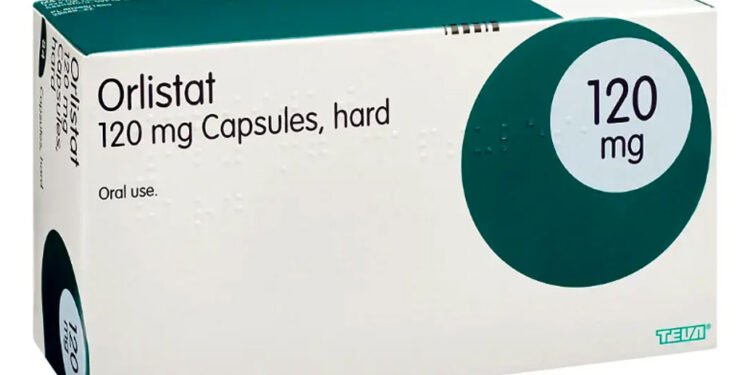Introduction
In a world where obesity rates are soaring, effective weight loss solutions have never been more crucial. One such medication that has gained attention is Orlistat, commonly known under the brand name Xenical. This prescription drug offers a pharmacological approach to weight management, specifically designed for those struggling with obesity or overweight issues. In this comprehensive guide, we delve into the intricacies of Orlistat 120mg, exploring its mechanisms, usage guidelines, potential side effects, and complementary lifestyle strategies that can enhance its effectiveness.
Understanding Orlistat
Orlistat belongs to a class of medications known as lipase inhibitors. It targets the digestive enzymes responsible for breaking down fats in the diet, thereby reducing the amount of fat absorbed by the body.
2.1 How Orlistat Works
Orlistat inhibits the action of gastrointestinal lipases—enzymes that facilitate fat digestion in the intestines. By blocking these enzymes, Orlistat prevents approximately 30% of dietary fats from being absorbed into the body. Instead, these unabsorbed fats are excreted in the stool, leading to a caloric deficit that contributes to weight loss.
2.2 The Science Behind Weight Loss
The concept behind weight loss can be simplified into a straightforward equation: energy intake versus energy expenditure. To lose weight, one must consume fewer calories than they burn. Orlistat aids this process by limiting calorie intake from dietary fats, making it easier for individuals to achieve and maintain a healthy weight.
Indications for Use
Orlistat is primarily prescribed for individuals with a body mass index (BMI) of 30 or higher or those with a BMI of 27 or higher who have weight-related health conditions such as type 2 diabetes or hypertension.
– Obesity Management: For adults looking to lose weight and maintain a healthy lifestyle.
– Comorbid Conditions: Patients suffering from obesity-related conditions may find additional benefits.
– Long-term Treatment: It is intended for long-term use alongside a reduced-calorie diet.
Dosage and Administration
The standard dosage for Orlistat is 120mg taken three times daily with meals containing fat. Here are some essential points regarding its administration:
– Timing: Take Orlistat during or up to one hour after each main meal.
– Dietary Considerations: Ensure meals contain no more than 30% of total calories from fat to maximize effectiveness.
– Supplementation: Multivitamins may be recommended as Orlistat can affect fat-soluble vitamin absorption (A, D, E, and K).
It is crucial not to exceed the recommended dosage without consulting a healthcare professional.
Side Effects and Safety Considerations
Like all medications, Orlistat can cause side effects. While many users tolerate it well, potential side effects may include:
– Gastrointestinal Issues: Commonly reported effects include oily stool, increased flatulence, and fecal urgency.
– Nutrient Deficiencies: Long-term use can lead to deficiencies in fat-soluble vitamins; hence monitoring is essential.
– Kidney Stones: Some studies suggest an increased risk of kidney stones; hydration is vital.
Patients should be monitored regularly by healthcare providers throughout their treatment period to manage any adverse effects effectively.
Lifestyle Changes to Enhance Effectiveness
While Orlistat can aid in weight loss efforts, combining it with healthy lifestyle changes amplifies its benefits significantly:
- Balanced Diet: Focus on whole foods—fruits, vegetables, lean proteins, and whole grains.
- Regular Exercise: Incorporate at least 150 minutes of moderate-intensity aerobic activity weekly.
- Behavioral Modifications: Engage in cognitive-behavioral strategies to address emotional eating patterns.
The Role of Diet in Weight Management
Diet plays a critical role in enhancing the efficacy of Orlistat. Patients are encouraged to adopt dietary changes that not only complement their medication but also promote overall health:
– Low-Fat Foods: Aim for meals where fats make up less than one-third of total caloric intake.
– Portion Control: Be mindful of portion sizes to avoid excess calorie consumption.
– Hydration: Drink plenty of water throughout the day to stay hydrated and support metabolic processes.
Incorporating these dietary practices can lead to sustainable weight loss while using Orlistat.
Real-Life Success Stories with Orlistat
Numerous individuals have shared their experiences using Orlistat as part of their weight loss journey:
– Case Study 1: A 45-year-old woman combined Orlistat with dietary changes and regular exercise, resulting in a weight loss of over 30 pounds within six months.
– Case Study 2: A man in his early thirties used Orlistat alongside counseling sessions focused on managing emotional eating habits and lost significant weight while improving his overall well-being.
These stories illustrate not only the potential effectiveness of medication but also underscore the importance of adopting comprehensive lifestyle changes for lasting success.
The Future of Weight Loss Medications
As research advances, new options for weight management are continuously being explored. The landscape of anti-obesity medications is expanding with ongoing studies investigating combination therapies that could offer enhanced results compared to traditional treatments like Orlistat alone.
Moreover, personalized medicine approaches are gaining traction—tailoring obesity treatments based on individual genetic profiles may soon become standard practice in addressing overweight and obesity issues.
In conclusion, while Orlistat presents a valuable tool in the fight against obesity, its efficacy is maximized when paired with committed lifestyle changes and ongoing monitoring by healthcare professionals. This multifaceted approach not only supports weight loss but encourages long-term health benefits that extend beyond mere numbers on a scale.












